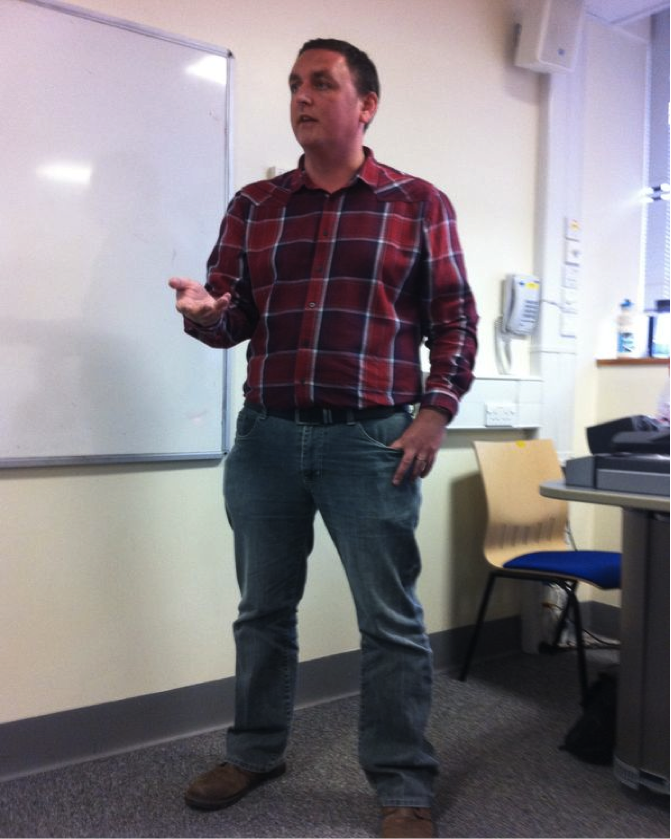By the IPA committee
Thursday 23rd May saw the IPA’s second Science Lives Seminar. Following on from our first talk about the realities of establishing an independent research group in academia, the IPA wanted to explore what else a post-doc can do. What are our alternative careers?
To start answering this question, we invited Dr Andrew Jermy, a senior editor at Nature, to give us a talk on his career in journal editing.

Postdocs waiting to hear either (a) how to publish their papers in Nature or (b) how to work for Nature
Dr Jermy’s talk started by illustrating his personal experience. Like all of us, he completed a PhD in the biological sciences field and then did two short post-docs before he decided to leave academia to start a career in editing, first at Nature Cell Biology, followed by Nature Reviews Microbiology and now more recently at Nature. To achieve this, he used his networking skills as he had met someone currently working for Nature at conference. Hint, keep building up your contacts! It was very interesting for us all to understand the motivations that brought him to try a new and alternative career. “Getting bored of waiting for westerns to come out of the developer”, he repeated several times. Maybe he is not the only one?
Dr Jermy also described the several different job entry levels possible at Nature, something that applies generally to many of the larger scientific journals. We now have a much better idea of what working for a scientific journal actually entails and where we could slot in. He pointed out that in this kind of career you need a keen interest in all science, as well as being constantly on top of the cutting edge research in your specific editing field. The ability assimilate information quickly and handle up to 40-50 papers per month, while travelling to conferences and universities is also a must. On the other hand, Dr Jermy underlined that his job is not a simple 9-5 job. However, he can work from home and with the advantage of a permanent position as well as opportunities for career progression, this can make his career more family-friendly than what we post-docs are used to. Ultimately, this career seems ideal for those post-docs who no longer enjoy working at the bench, but still enjoy the other aspects of scientific life, such as reading, writing and networking at conferences.

Andrew demonstrates the Nature ‘secret handshake’
There was however much more to Dr Jermy’s talk than the career side… he gave practical tips to post-docs who want (or maybe its better to say wish) to submit a paper to Nature; from the title to the covering letter, from the abstract to the “style” of writing. Dr Jermy made a clear point that the philosophy of the journal is not to bin 90% of the papers they receive, but to focus on helping the top 10% of the articles emerge and get published. Finally, did you know you can send a pre-submission enquiry to Nature, asking if your scientific results are of interest before going through the long and painful online submission? Helpful for everyone!
After the seminar there was an informal chat-session, useful for post-docs to ask questions in a relaxed environment, helped of course by a beer in our hands!
The IPA wishes everyone a nice Summer and we will see you all for our next social event: a barbecue in September, a perfect occasion to give a warm welcome to new post-docs joining ICAMB as well as for all the current post-docs and final year PhD students to get together for the beginning of a new academic year.
Updates will follow on the website.
IPA Committee
IPA is run by Postdocs, for Postdocs. Get involved!
Links
Institute for Cellular and Molecular Biosciences: http://www.ncl.ac.uk/camb/
Newcastle University: http://www.ncl.ac.uk/
Nature Journal: http://www.nature.com/nature/index.html
Andrew Jermy’s twitter page: https://twitter.com/jermynation
